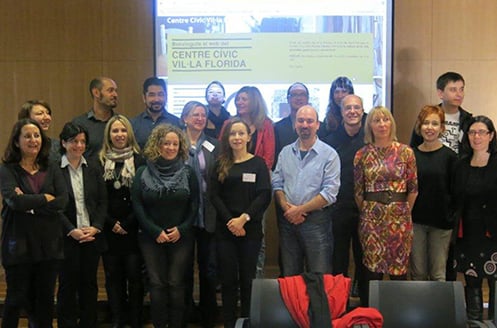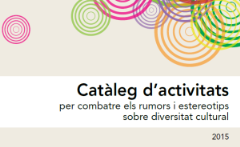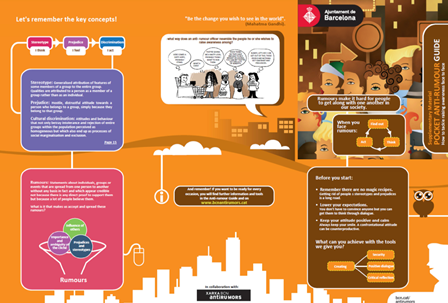Profile and activities

Barcelona is the second largest city in Spain with a total population of 1,611,822 inhabitants in June 2013. It is the capital of Catalonia and the headquarters for the Mediterranean Union. As a result of gradual integration over the centuries, the city is now organised in ten districts composed of several smaller neighborhoods with a distinct personality and historical tradition. The administration of these districts is decentralised and close to citizens. Catalan is the official language of Catalonia, as is Spanish, which is the official language of Spain. Both languages coexist in Barcelona, where most people understand, write, read and speak it normally. The city, with a very diverse migrant population of 281,225 (17.4%), is an open gate to living together and dialogue between neighbors of diverse life experiences, numerous languages and cultures. Barcelona’s cosmopolitan nature is, undoubtedly, one of its most outstanding features. It receives continuous recognition as a global city of great international projection, not only because of its diverse population but also because of its cultural, financial, commercial and touristic importance.
In regards of its social development, Barcelona public policies seek to build an intercultural community of citizens with a shared project for an integrated, unified and dynamic city through 1) acknowledgement and promotion of its diversity, 2) furthering equal rights, obligations and opportunities, and 3) promoting positive interaction among culturally diverse individuals and groups.
RELATED DOCUMENTS
- Presentation of the city of Barcelona
- Demographic data of the city of Barcelona
- PowerPoint, Training of anti-rumour agents, Barcelona
- Practical guide for training of anti-rumour agents, Barcelona
- Training of trainers for anti-rumour agents : examples of actions and communication strategies
- Identifying rumours and collection anti-rumours data : the case of the Barcelona anti-rumour strategy
- Training antirumours agents : the case of the Barcelona anti-rumours strategy
- Anti-rumour networking Barcelona
- Anti-rumour communication strategies Barcelona
- Evaluation of the Barcelona anti-rumour strategy
- Brochure of the practical guide, Barcelona
- Catalogue of the anti-rumour activities, Barcelona
C4i in the local media
- Barcelona al C4i, un projecte europeu per combatre prejudicis, estereotips i actituds racistes (Barcelona participates in the C4i, a European project to fight prejudices, stereotypes and xenophobia)
- http://zonasec.cat/xarxa-bcn-antirumors-exemple-europeu
- http://www.laveudafrica.com/04072014-butlleti-num-30-del-programa-bcninterculturalitat/
- http://www.antirumores.com/cat/xi_seminario_immigracion_y_europa.html
Other Resources
Action Plan for the BCN Antirumours Network 2012-2014. The document includes initiatives, actions and instruments to be developed, in topics such awareness, training, education and media (in Catalan).
Meetings
C4i Kickoff meeting

The Council of Europe launches an innovative project to combat xenophobia and to promote social cohesion
Have you ever heard expressions like "Immigrants receive more financial aid to open their businesses, and they don't pay taxes…"; "Immigrants are overcrowding our health services…" or "Immigrants don't want to integrate or learn our language…"? Such ideas, generally unsupported by facts and data, target specific groups as ‘problematic' and it generate mistrust and social conflict.
C4i – Communication for Integration project aims to fight against misconceptions and prejudices, rumours and stereotypes by using viral information techniques to provide evidence-based answers to common misconceptions. Active participation from citizens as "anti-rumor agents" is a key feature of C4i.
C4i has been inspired by the ‘anti-rumors' campaign initiated by the Barcelona City Council in 2010. The city started a long-term strategy to improve living together in a diverse society through a campaign to bust rumours, misconceptions and prejudices that many local people held about minorities and immigrants.
The first meeting of the C4i project partners was held in Barcelona on February, 11-12. The Council of Europe, as a lead partner, will work during 18 months with 11 European cities, which will design their own anti-rumour strategies according to local needs and expectations. The meeting reunited more than 20 participants from Amadora (PT), Barcelona (ES), Bilbao (ES), Botkyrka (SE), Erlangen (DE), Limerick (IE), Loures (PT), Lublin (PL), Nuremberg (DE), Patras (GR) and Sabadell (ES). Copenhagen (DK) and Getxo (ES) also participated as invited cities in the meeting.
This project is implemented by the Council of Europe in the framework of the Intercultural Cities programme and funded by the European Commission in the framework of the European Fund for the Integration of third-country nationals. The project will last 18 months and will generate more than 100 actions in the different cities.
afd2.png?t=1398437013000)
general information
Barcelona on the map












 Pla d’acció Xarxa BCN Antirumors 2012-2014
Pla d’acció Xarxa BCN Antirumors 2012-2014